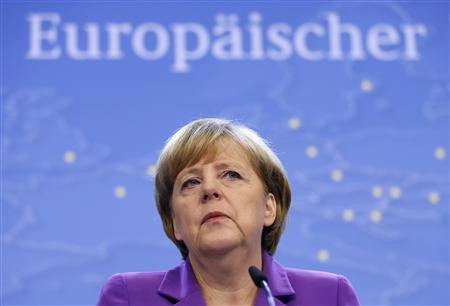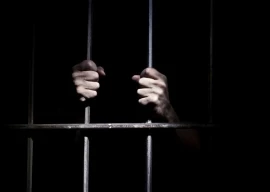
Conservative Merkel faces splits in her right-left coalition and pressure from EU states, including France, over her insistence that Germany can cope with up to 1 million migrants this year and that Europe must accept quotas to take them in. In a 40-minute speech to the Bundestag lower house of parliament, Merkel said the security threat level in Germany was high but insisted that people must carry on with normal life.
With refugees, German Muslim minority could be Europe’s largest
"The strongest response to terrorists is to carry on living our lives and our values as we have until now, self-confident and free, considerate and engaged," she said to loud applause.
"We Europeans will show our free life is stronger than any terror," Merkel added, battling with a croaky voice. Just hours before heading to Paris to meet French President Francois Hollande, she said Germany would show solidarity with France after the attacks that killed at least 130 people.
Germany, which has since World War Two been reluctant to join military missions abroad, said earlier it is sending 650 soldiers to the UN peacekeeping mission in Mali and increasing the number of troops training Kurdish Peshmerga forces in Iraq.
But in addition, Merkel stressed her commitment to her disputed refugee policy, saying Germany, Europe's economic powerhouse, has a duty to protect those fleeing war and conflict in the Middle East, Africa and Asia.
In a nod to critics in her conservative party, especially in Bavaria, where most of the migrants enter Germany, she said that migrants who do not need protection must be sent home. "But simply sealing ourselves off will not solve the problem," she said.
Germany celebrates 25 years of unity with call for refugee welcome
Merkel repeated her "we will cope" mantra and reiterated her argument that Europe must tackle the causes of the crisis by working for peace in Syria and engaging Turkey as a partner in the refugee crisis.
She countered politicians in some countries who have warned that the refugee crisis has exposed problems in Europe's Schengen passport-free area, saying that states must develop it further by agreeing on migrant quotas.
"A distribution of refugees according to economic strength and other conditions ... and the readiness for a permanent distribution mechanism ... will determine whether the Schengen area will hold in the long term," she said.
Jewish group in Germany urges limit to refugee influx
Popular support for Merkel, who this week marked a decade in power, and her conservative party has waned in the last three months due to the influx of migrants. But a Forsa poll on Wednesday put her conservative bloc up three points at 39% due to the effect of the Paris attacks, which Forsa chief Manfred Guellner said drives voters back to the incumbent party.

















COMMENTS (1)
Comments are moderated and generally will be posted if they are on-topic and not abusive.
For more information, please see our Comments FAQ